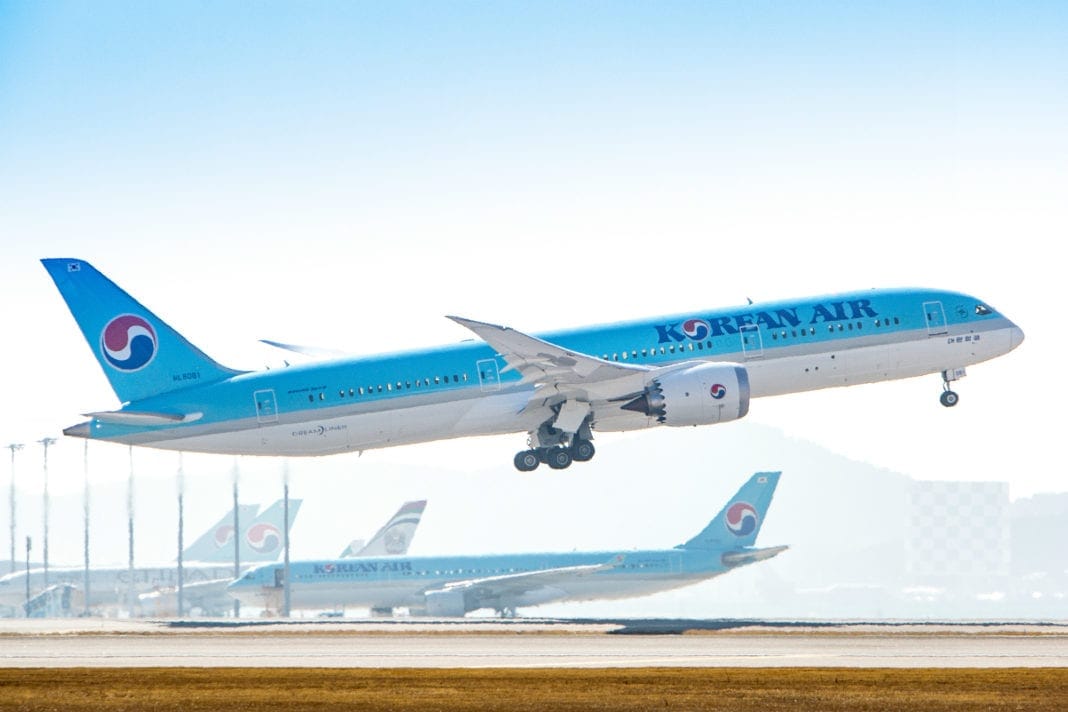BERLIN, Germany – Airberlin made good progress in its operational and commercial performance in 2015 with revenue per available seat kilometre, yield, load factor, operating seat cost and ancillary revenues all improving.
Stefan Pichler, Chief Executive Officer, said: “Although we reported a significant net loss of -446.6 million euros in 2015, the underlying fundamentals of our business are now trending in the right direction, and we can look forward to further improvements in our trading performance, especially in the second half of this year.”
Several factors negatively impacted airberlin’s financial performance in 2015 including a protracted and damaging dispute over codeshare flights in the final quarter of 2015 and the beginning of 2016.
He said: “Even if the decision by the Lüneburg Higher Regional Court ultimately led to a pleasing outcome for us and our partner Etihad Airways, the months spent in limbo cost us 40 million euros in lost or cancelled sales in the fourth quarter of 2015.”
A second factor impacting the financial performance was the airline’s fuel hedging programme, as airberlin benefitted only to a limited extend from the more favourable kerosene price in 2015 and its fuel hedging transactions, coupled with the sharp decline in the US dollar, meant a missed opportunity amounting to more than 200 million euros.
Mr Pichler continued: “But in 2016 we will benefit from the relatively low cost of fuel in the order of 250 million euros.
“Our result also reflects the one-off effects of restructuring and other non-recurring operating costs to the value of approximately 92 million euros.
“In addition, we saw a six per cent reduction in non-performing capacity which led to a reduction in total revenue.
“Like the other restructuring initiatives, however, this will start to show benefits in our efficiency and cost base in the second half of this year.”
The airline was also impacted by geopolitical events such as the terrorist attacks in Egypt and Paris.
“I am confident that with this sound basis, airberlin will witness an improved trading performance in 2016 thanks to the continued development of our hubs in Berlin and Dusseldorf, a deepening of the commercial relationship with Etihad Airways Partners and oneworld and by taking advantage of lower fuel prices.
“Etihad Airways is committed to airberlin and we continue to play a key role towards its success. We delivered 140 million euros last year in direct passenger revenues to our major shareholder.
“We have its support for the aggressive and radical restructuring of our business. However, there are still hard decisions to be made, which require the clear support of key internal stakeholders.”
Mr Pichler added that airberlin reorganised its commercial activities to improve revenue and it has developed a more focused corporate and network approach. In 2015, the airline achieved a 2.0 per cent increase in the revenue it received from each seat on its network.
“airberlin has made important steps in tackling its cost base, which will reap benefits in 2016 – particularly in the second half of the year – and for the first time in four years we succeeded in increasing the yield significantly.”
2015 Business Performance
Total revenue per available seat kilometre (RASK) increased above the general market trend by a significant 3.7 percent to 7.31 euro cents (2014: 7.05 euro cents). The average fare per passenger in the reporting year increased by 2.0 percent to Euro120.31 (2014: Euro117.90). Overall, ancillary revenue rose by 4.2 percent to Euro191 million (2014: Euro183 million) with passenger spend increasing by 9.2 percent.
The most frequently purchased additional services were seat reservations, followed by additional baggage and onboard sales. airberlin improved average yield significantly, especially due to premium offerings such as the 40 additional XL seats in the economy class, installed in each long-haul aircraft. The proceeds from ground service – cargo revenue, technical services and wet-lease revenue – plus other services, including ancillary revenues, rose by 6.3 percent in 2015, to 343.9 million euros (2014: 323.5 million euros).
Capacity reduced by 6.8 percent in 2015 due to network optimisation. Available seat kilometres (ASK) dropped by 5.4 per cent to 56 billion (2014: 59 billion). Revenue passenger kilometres (RPK) decreased by 4.6 percent to 47.0 billion (2014: 49.3 billion)
As a result load factor increased (RPK/ASK) by 0.7 percentage points to 84.2 percent (2014: 83.5 percent).
Together, these operational improvements meant that despite the airline’s planned capacity reduction of 6.8 per cent and the unstable situation in the global travel market – especially in the fourth quarter – total sales declined by just 2 percent to 4,081.8 million euros (2014: 4,160.2 million euros). Passenger revenue decreased by 2.7 percent to 3,639.3 million euros (2014: 3,739.2 million euros).
Total costs decreased by 1.5 percent to 4,388.7 million euros (2014: 4,453.9 million euros) leading to an operating result (EBIT) for the 2015 financial year of -307.0 million euros (2014: -293.8 million euros). Adjusted for the one-off effects of restructuring provisions, cost related to the introduction of a single narrow body fleet and non-recurring other operating costs amounting to 92 million euros, EBIT was -215.4 million euros.
The operating cash flow improved to -151.1 million euros from -263.4 million euros in 2014 due to non-charges contained in the operating results, as well as improved working capital.
Adjusted for one-off effects, unit costs rose by 1.9 percent as semi-fixed costs such as cost of aircraft ownership, crew and overheads could not be reduced at the same rate as capacity.
The net result decreased to -446.6 million euros (2014: -376.7 million euros), a figure that was negatively influenced by non-cash charges for deferred tax assets and the valuation of long term liabilities and derivatives.
Volume-adjusted fuel expenses in 2015 were 4.5 percent (43 million euros) lower than in the previous year.
Due to fuel hedging transactions dating from 2014, and the sharp rise in the US dollar, airberlin benefitted only to a limited extend from the more favourable kerosene price movements during the reporting year, but the airline will take advantage in 2016 from the low cost of fuel.
airberlin implemented a more systematic and channel-driven sales strategy in 2015, and better aligned its product range to suit the needs of various customer types. A major sales contribution came from the introduction of a new revenue management system which helped grow airberlin´s yield performance and this trend is set to continue.
Strengthening Our Network
Stefan Pichler said: “We made the decision in 2015 to add more long-haul flights, mainly to the US. This segment offers growth, better margins and increased customer loyalty as we continue on our path to become a network airline.”
airberlin will serve around 90 long-haul destinations from its two hubs at Berlin and Dusseldorf from summer 2016.
Mr Pichler added: “Moreover, we are deepening our existing cooperation with Alitalia to strengthen further air connections between Germany, Austria, Switzerland and Italy. Customers benefit from up to 25 per cent more weekly non-stop flights to Italy. The deeper cooperation with Alitalia paves the way for enhanced competiveness and our common passengers are already benefitting from greater travel comfort, improved connections and a much more attractive route network.
“The partnership between airberlin and Etihad Airways offers a better range of flights and destinations for passengers, plus strong growth potential. Overall, the two airlines saw passenger numbers grow in 2015 by more than 20 per cent to 720,000.
“airberlin passengers benefit especially from the numerous connections to Asia, Africa and Australia offered by Etihad Airways from its Abu Dhabi hub. Together with Etihad Airways and its six equity airline partners, we offer a competitive global network for our customers to more than 350 destinations across six continents.”
The oneworld alliance also gives airberlin passengers access to a global route network of more than 1,000 destinations in over 150 countries. More than 1.5 million passengers in 2015 used the airline alliance.
WHAT TO TAKE AWAY FROM THIS ARTICLE:
- A second factor impacting the financial performance was the airline’s fuel hedging programme, as airberlin benefitted only to a limited extend from the more favourable kerosene price in 2015 and its fuel hedging transactions, coupled with the sharp decline in the US dollar, meant a missed opportunity amounting to more than 200 million euros.
- “Even if the decision by the Lüneburg Higher Regional Court ultimately led to a pleasing outcome for us and our partner Etihad Airways, the months spent in limbo cost us 40 million euros in lost or cancelled sales in the fourth quarter of 2015.
- “I am confident that with this sound basis, airberlin will witness an improved trading performance in 2016 thanks to the continued development of our hubs in Berlin and Dusseldorf, a deepening of the commercial relationship with Etihad Airways Partners and oneworld and by taking advantage of lower fuel prices.






















